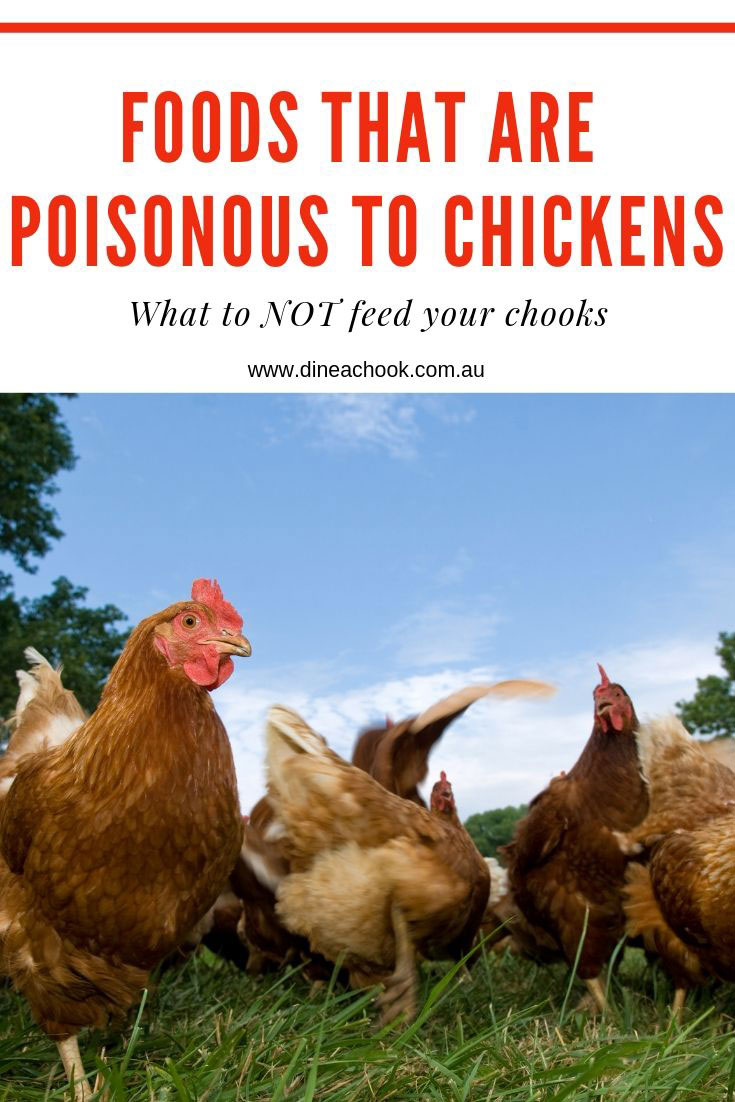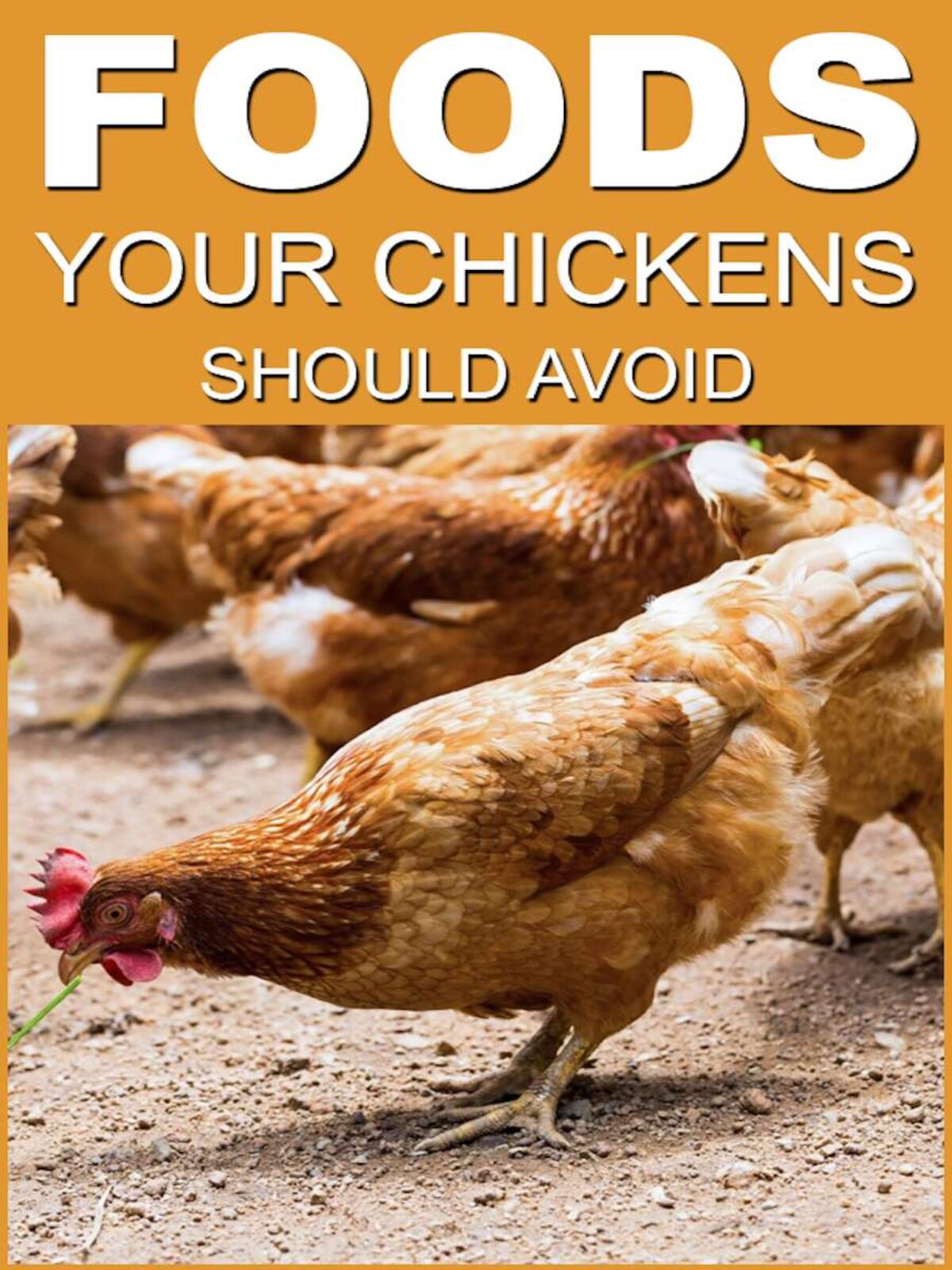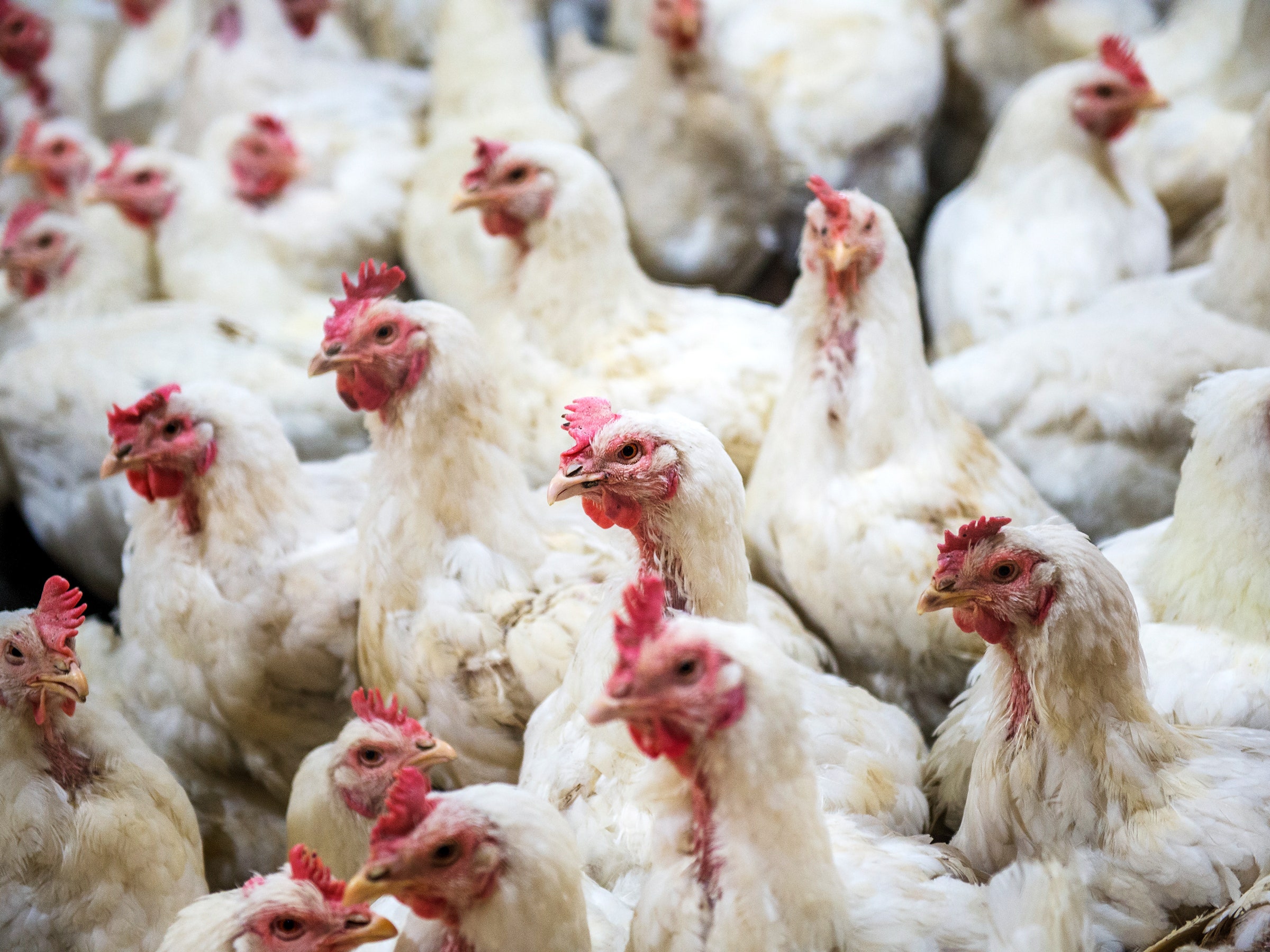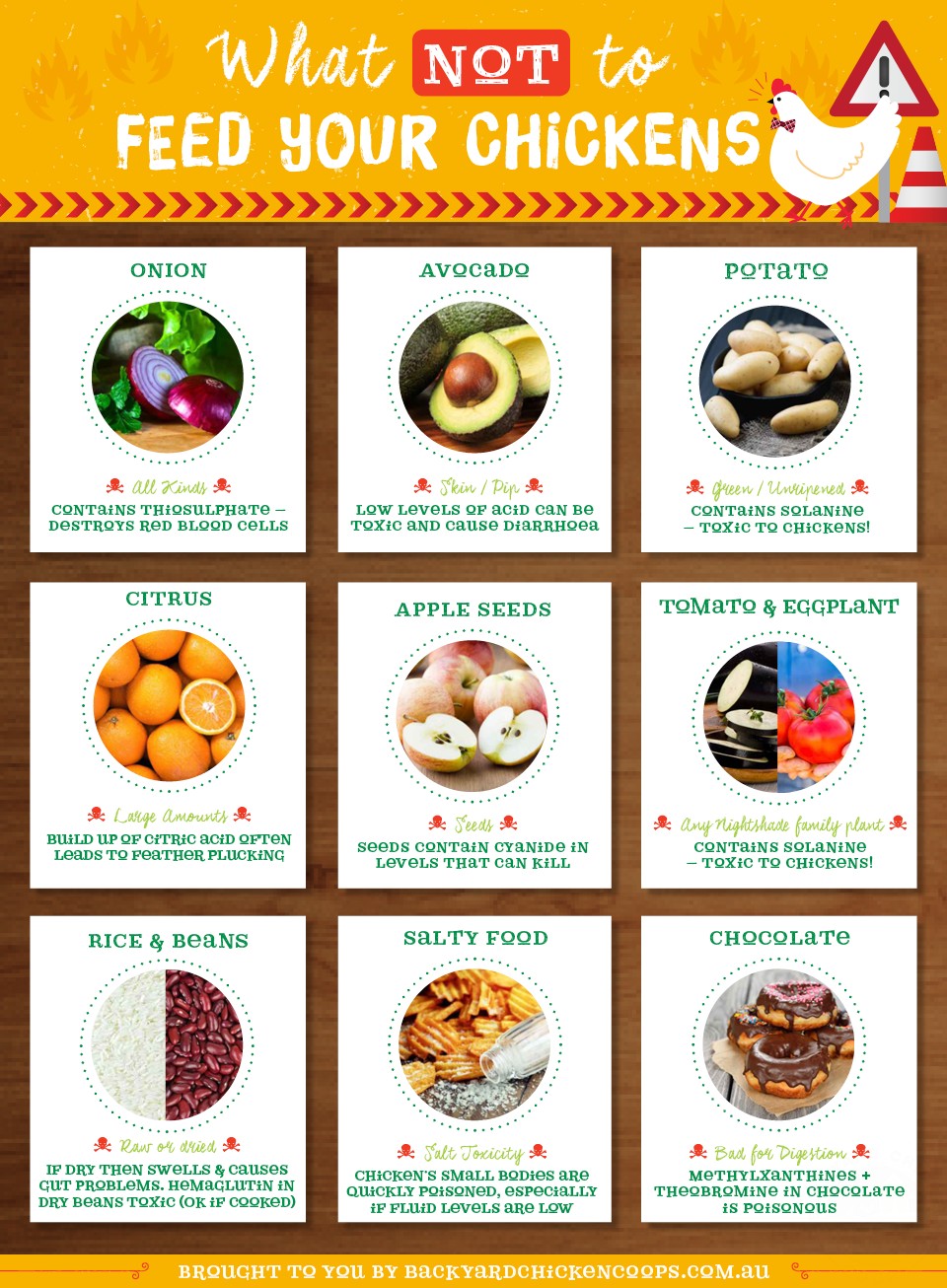If you are a chicken farmer or are thinking of raising chickens, it’s important to be aware of the foods toxic to chickens. Chickens are highly susceptible to foods that are toxic to them, and these should be avoided in order to keep your chickens healthy. This article will provide an overview of the foods toxic to chickens, and how to keep them away from your chickens.
What Are Poisonous Foods for Chickens?

Chickens are omnivores, meaning they can eat a variety of different foods. However, some foods can be toxic or even deadly to chickens. To protect your chickens’ health, it is important to know which foods to avoid.
Poisonous foods for chickens include:
- Avocado and avocado pits
- Chocolate
- Onions and garlic
- Moldy or spoiled food
- Alcohol
- Coffee and caffeine
- Rhubarb leaves
- Cherries, peach pits, and apple seeds
- Raw potatoes, green potatoes, and potato plants
These foods can cause serious health problems, like respiratory issues, digestive upset, and even death. It is important to only feed your chickens healthy treats, like corn, wheat, oatmeal, and other grains. Additionally, it is important to make sure your chicken’s diet is balanced, providing the necessary proteins, fats, and vitamins they need.
Different Types of Foods That Are Toxic to Chickens

Green Potato Skins
Potato skins are toxic to chickens and can cause a variety of illnesses and even death. It is important to throw away any potatoes that have green, red, or purple spots on their skins.
Avocado
Avocado is highly toxic to chickens and can cause difficulty breathing, fluid accumulation in the chest, and even death in chickens.
Chocolate
Chocolate contains theobromine, which is toxic to chickens and can lead to heart palpitations, seizures, and death.
Onion and Garlic
Onion and garlic contain sulfoxides and disulfides, which can damage red blood cells and lead to anemia in chickens.
Apple Seeds
Apple seeds contain a form of cyanide, which is toxic to chickens and can lead to death.
Caffeine
Caffeine is toxic to chickens and can lead to excessive thirst, increased heart rate, and even death.
Bread or Dough
Raw dough contains yeast, which causes gas to build up in the digestive tract and can lead to a condition known as “bloat.” Bloat can lead to death in chickens. It is important to not feed chickens raw bread or dough.
It is important to be aware of what foods are toxic to chickens in order to keep them healthy. By avoiding the foods listed above, you can help keep your chickens safe and healthy.
Other Foods to Avoid

Uncooked Meat or Eggs
Chickens should not be fed uncooked meat or eggs as this can cause them to become ill. The bacteria present in these foods can be dangerous for the birds.
Moldy or Spoiled Food
Moldy or spoiled food can also be toxic to chickens and should be avoided. Make sure to keep all food stored properly and away from moisture or other sources of contamination.
Raw Beans
Raw beans, especially red or kidney beans, contain a toxin called lectin, which can be harmful to chickens. Make sure to cook beans properly before feeding them to your birds.
Rhubarb Leaves
Rhubarb leaves contain oxalic acid, which is toxic to chickens and can cause them to become ill.
Uncooked Rice
Uncooked rice should also be avoided when feeding chickens as the grains can swell up and cause digestive issues.
Salty Food
Foods high in salt should be avoided as they can cause dehydration and other health problems.
Uncooked Oatmeal
Uncooked oatmeal can also be dangerous for chickens as the grains can swell up and cause digestive issues. Make sure to cook the oatmeal before feeding it to your birds.
In order to maintain a healthy flock, foods toxic to chickens should be avoided and all food should be stored properly and cooked before feeding it to your birds.
Symptoms of Poisoning and How to Treat It

Chickens are vulnerable to a variety of toxins, including certain foods that are harmful or even fatal for them. Knowing what foods are poisonous to chickens can help keep your flock healthy. Common symptoms of poisoning include:
- Diarrhea
- Lethargy
- Lack of appetite
- Decreased egg production
- Vomiting
- Dehydration
- Loss of coordination
- Rapid weight loss
If you suspect your chicken has been poisoned, it is important to act quickly. First, isolate the affected bird from the rest of the flock. Then, try to identify the toxin and take steps to treat the symptoms. Depending on the severity of the poisoning, treatment may include:
- Flushing the digestive system with a saline solution
- Administering activated charcoal to absorb the toxin
- Providing fluids to prevent or treat dehydration
- Administering antibiotics to treat any secondary bacterial infections
- Giving supportive care to manage symptoms
If the poisoning is severe, it is important to take the bird to the vet for treatment as soon as possible.
Prevention Is Better Than Cure – How to Make Sure Your Chickens Stay Healthy
Taking preventive steps to ensure your chickens stay healthy is the best way to reduce the risk of disease. Here are some tips to help you keep your chickens healthy:
Provide Clean Water and Nutritious Feed
A balanced diet is essential for healthy chickens. Make sure they have access to fresh, clean water and feed that is high in protein and calcium. Avoid foods that are toxic to chickens, such as chocolate, coffee, and avocado.
Keep the Coop Clean
Clean the coop regularly to prevent the spread of parasites and diseases. Remove wet bedding, droppings, and food scraps. Disinfect the coop with a bleach solution and replace the bedding regularly.
Monitor for Signs of Illness
Check your chickens regularly for signs of sickness, such as reduced egg production, weight loss, or moulting. If you notice any of these signs, take your chickens to the vet immediately.
Vaccinate Regularly
Vaccinate your chickens regularly to protect them against disease. Talk to your vet about the best vaccine for your chickens.
Avoid Things Not to Feed Chickens
Be aware of the foods that are toxic to chickens, such as onions, garlic, and rhubarb. Keep these foods out of reach and away from your chickens.
By following these steps, you can help ensure your chickens stay healthy and happy. Prevention is always better than cure, so make sure you take the necessary steps to keep your chickens safe.
Frequently Asked Questions
What are the most common toxic foods for chickens?
Chickens are omnivores, but not all foods are suitable for them. Certain foods are toxic to chickens and can cause severe health problems. The most common toxic foods for chickens include chocolate, avocado, garlic, onions, rhubarb, green potato skins, and raw beans. In addition, any moldy or spoiled food can be toxic to chickens. It is important to keep these foods away from chickens and to provide them with a balanced diet for optimal health.
What Should I Do If My Chicken Has Eaten Something Toxic?
If you suspect your chicken has ingested something toxic, contact your local veterinarian immediately. Provide as much information as possible about the toxin and the amount ingested. Your vet can advise on the best course of action, which may include inducing vomiting or administering supportive treatments such as activated charcoal or fluids. If the toxin is a pesticide or chemical, you may be advised to bring the chicken to the vet for further treatment. In any case, it is important to act quickly as the effects of toxins can be serious and even fatal.
Are There Any Long-Term Effects of Consuming a Toxic Food?
Yes. Consuming a toxic food can have long-term effects on the health of chickens. These effects can include:
- Decreased egg production
- Reduced fertility
- Loss of appetite
- Growth and development problems
- Increased susceptibility to disease
- Damage to the liver and kidneys
In severe cases, toxic foods can lead to death. Therefore, it is important to be aware of which foods are toxic to chickens and take precautions to ensure their safety.
How can I ensure that my chickens do not have access to toxic foods?
- Do not feed your chickens any human food. Human food often contains ingredients that are toxic to chickens, such as onions, garlic, chocolate and avocados. Additionally, human food can contain bacteria, such as salmonella, which can make your chickens sick.
- Do not feed your chickens any animal products. Animal products, such as meat, fish, and eggs, can contain parasites and bacteria that can make your chickens sick. Additionally, animal products can contain high levels of fat, which can cause health issues in chickens, such as obesity.
- Do not feed your chickens any plants that are poisonous to them. Some plants, such as rhubarb leaves, tomatoes, potatoes, and nightshade, can be toxic to chickens. Additionally, some plants, such as avocado pits, can cause intestinal blockages in chickens.
- Do not feed your chickens moldy or spoiled food. Moldy or spoiled food can contain toxins that can make your chickens sick. Additionally, moldy or spoiled food can contain bacteria that can cause respiratory illnesses in chickens.
- Do not feed your chickens any insects that are poisonous or dangerous. Some insects, such as bees and wasps, can sting chickens and cause pain and inflammation. Additionally, some insects, such as certain types of caterpillars, can be toxic to chickens if ingested.
Is there anything I can do to make sure my chicken’s diet is healthy and safe?
Yes, there are several steps you can take to make sure your chicken’s diet is healthy and safe. Start by avoiding all foods toxic to chickens, such as chocolate, caffeine, alcohol, raw beans, rhubarb leaves, and avocado, as they can be harmful to chickens. Additionally, always feed your chickens a balanced diet of protein, carbohydrates, vitamins, minerals, and fats. Provide a range of nutrient-rich foods such as fresh fruits and vegetables, grains, and high-quality chicken feed. Finally, make sure to keep food and water dishes clean and change the water daily.
Conclusion
It is important to remember that many everyday foods can be toxic for chickens, and that it is essential to keep a watchful eye on a chicken’s diet. By avoiding these foods, and providing a balanced, healthy diet, chickens can live long, healthy lives.
